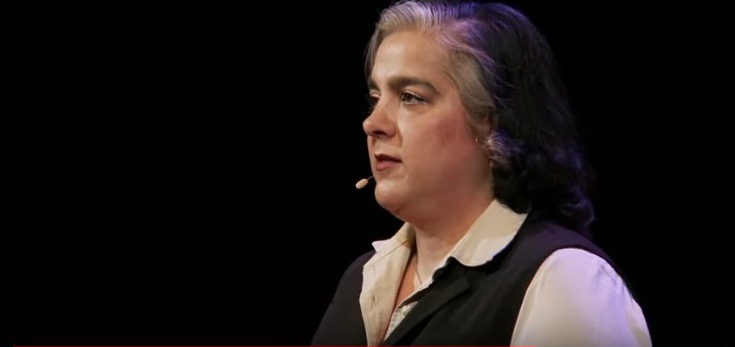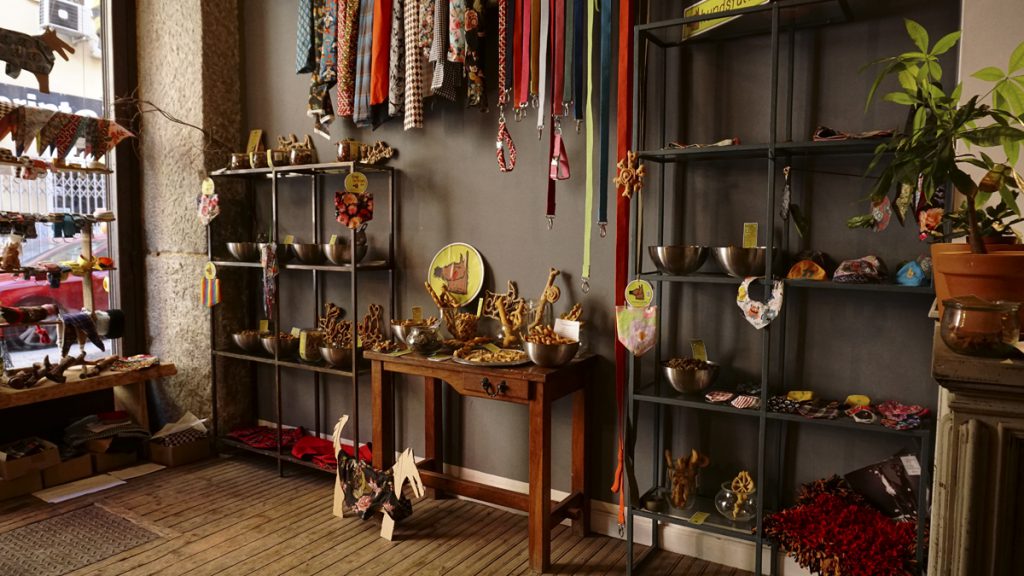
Hier ein Video von der Weltgesundheitsexpertin Alanna Shaikh, die wunderbar herleitet, wie unser Verhalten als Menschen auf dem Planeten zwangsläufig zu Pandemien wie durch Coronavirus 19 führt und immer wieder führen wird. Denn wenn wir weiter machen wie bisher, versäumen wir die Chance auf eine lebenswerte Zukunft. Die Probleme die uns bedrohen sind nicht zu lösen wie Politik und Wirtschaft der meisten Länder es gerne hätten. Gerechtigkeit Mittel gegen Coronavirus bedeutet das Problem an der Wurzel anzugehen. Und nicht die Symptomen zu behandeln. Und viel wichtiger: Es ist das Mittel gegen alle andere Viren, die wir noch gar nicht kennen.
Das was man machen kann gegen verheerende Pandemien ist einfach und muss nicht erst erfunden werden. Aber es ist sehr, sehr unbequem. Und da ist das Problem. Es bedeutet einschneidende Veränderungen im System. Die Werte für eine lebenswerte Zukunft heissen: Gerechtigkeit, Nachhaltigkeit, Rücksicht und Mitgefühl. Nicht Gier, Ausbeutung, Skrupellosigkeit und Weggucken.
Wir müssen weg von der Spaltung der Gesellschaft in immer Ärmere und immer Reichere. Es muss normal sein, dass die Schwachen teilhaben dürfen am Leben und den Möglichkeiten, die die reichen Länder haben. Gerechtigkeit ist das Mittel gegen Coronavirus und andere Pandemien die kommen können. Unser Lebensstil darf nicht basieren auf Ausbeutung und Zerstörung. Das Recht auf Gesundheit und entsprechende Einrichtungen zur Erhaltung der Gesundheit müssen für alle Menschen selbstverständlich sein. Genauso das Recht auf eine gerechte Behandlung und auf eine echte Chance, sich mit seiner Arbeit ernähren zu können.
Im besten Fall entstehen so gar keine Epidemien. Und wenn sie entstehen, können Epidemien rechtzeitig erkannt und eingedämmt werden bevor eine Pandemie wie mit Corona 19 daraus wird.
Wenn sich einige wenige zu viel nehmen, bleibt für die Anderen nicht mehr genug übrig.
Aber leider nimmt die Ausbeutung der Welt durch die reichen Länder immer skrupellosere Formen an. Was genauso wie der gewaltige Energieverbrauch und in Folge die Erderwärmung mit schuld daran ist, dass die Menschen in armen Ländern so leben müssen, dass sie krank werden.
Wiederbesinnung auf echte Werte wie Solidarität und Ethik.
Wir brauchen eine Wiederbesinnung auf ethische Werte. Es muss einfach normal werden, dass die Menschen ein Gefühl haben für das was geht und das was nicht geht. Vielleicht hilft es auch dabei zu verstehen, dass Gerechtigkeit das wirksamste Mittel gegen Coronavirus ist, wenn wir uns vergegenwärtigen, dass am Ende wir davon selber profitieren.
Wir haben den gesunden Menschenverstand verloren.
Im Moment haben wir zugelassen, dass alle Botschaften in den sozialen Medien sich ähneln und kaum jemand noch differenziert, mit welcher Intention diese ins Netz gestellt wurden. Dadurch haben Gruppen und Personen angefangen uns massiv zu beeinflussen, so dass wir uns so entwickeln, wie es für ihre Interessen günstig ist. Das ist sehr gefährlich, denn wir haben unser eigenes Kriterium und den gesunden Menschenverstand verloren. Und wir werden zu immer gefühlloseren Wesen.
Hier das Video:
„I want to lead here by talking a little bit about my credentials to bring this up with you, because, quite honestly, you really, really should not listen to any old person with an opinion about COVID-19. (Laughter) So, I’ve been working in global health for about 20 years, and my specific technical specialty is in health systems and what happens when health systems experience severe shocks. I’ve also worked in global-health journalism. I’ve written about global health and biosecurity for newspapers and web outlets, and I published a book a few years back about the major global health threats facing us as a planet. I have supported and led epidemiology efforts that range from evaluating Ebola treatment centers to looking at transmission of tuberculosis in health facilities and doing avian influenza preparedness. I have a master’s degree in International Health. I’m not physician. I’m not a nurse. My specialty isn’t patient care or taking care of individual people. My specialty is looking at populations and health systems – what happens when diseases move on the large level. If we’re ranking sources of global-health expertise on a scale of 1 to 10 – 1 is some random person ranting on Facebook, and 10 is the World Health Organization – I’d say you can probably put me at like a 7 or an 8. So, keep that in mind as I talk to you. I’ll start with the basics here because I think that’s gotten lost in some of the media noise around COVID-19. So, COVID-19 is a coronavirus, and coronaviruses are a specific subset of virus, and they have some unique characteristics as viruses. They use RNA instead of DNA as their genetic material, and they’re covered in spikes on the surface of the virus, and they use those spikes to invade cells. Those spikes are the corona in coronavirus. COVID-19 is known as a novel coronavirus because, until December, we’d only heard of six coronaviruses. COVID-19 is the seventh. It’s new to us, it just had its gene sequencing, it just got its name – that’s why it’s novel. If you remember SARS – severe acute respiratory syndrome – or MERS – Middle East respiratory syndrome, those were coronaviruses, and they’re both called respiratory syndromes because that’s what coronaviruses do. They go for your lungs. Don’t make you puke, they don’t make you bleed from the eyeballs, they don’t make you hemorrhage, they head for your lungs. COVID-19 is no different. It causes a range of respiratory symptoms that go from stuff like a dry cough and a fever all the way out to fatal viral pneumonia. And that range of symptoms is one of the reasons it’s actually been so hard to track this outbreak. Plenty of people get COVID-19, but so gently, their symptoms are so mild that they don’t even go to a health care provider. They don’t register in the system. Children, in particular, have it very easy with COVID-19, which is something we should all be grateful for. Coronaviruses are zoonotic, which means that they transmit from animals to people. Some coronaviruses, like COVID-19, also transmit person to person. The person-to-person ones travel faster and travel farther, just like COVID-19. Zoonotic illnesses are really hard to get rid of because they have an animal reservoir. One example is avian influenza, where we can abolish it in farmed animals, in turkeys, in ducks, but it keeps coming back every year because it’s brought to us by wild birds. You don’t hear a lot about it because avian influenza doesn’t transmit person to person, but we have outbreaks in poultry farms every year all over the world. COVID-19 most likely skipped from animals into people at a wild animal market in Wuhan, China. Now for the less basic parts. This is not the last major outbreak we’re ever going to see. There’s going to be more outbreaks, and there’s going to be more epidemics. That’s not a maybe; that’s a given. And it’s a result of the way that we, as human beings, are interacting with our planet. Human choices are driving us into a position where we’re going to see more outbreaks. Part of that is about climate change and the way a warming climate makes the world more hospitable to viruses and bacteria. But it’s also about the way we’re pushing into the last wild spaces on our planet. When we burn and plow the Amazon rain forest so that we can have cheap land for ranching, when the last of the African bush gets converted into farms, when wild animals in China are hunted to extinction, human beings come into contact with wildlife populations that they’ve never come into contact with before, and those populations have new kinds of diseases: bacteria, viruses – stuff we’re not ready for. Bats, in particular, have a knack for hosting illnesses that can infect people. But they’re not the only animals that do it. So as long as we keep making our remote places less remote, the outbreaks are going to keep coming. We can’t stop the outbreaks with quarantine or travel restrictions. That’s everybody’s first impulse: Let’s stop the people from moving, let’s stop this outbreak from happening. But the fact is it’s really hard to get a good quarantine in place. It’s really hard to set up travel restrictions. Even the countries that have made serious investments in public health, like the US and South Korea, can’t get that kind of restriction in place fast enough to actually stop an outbreak instantly. There’s logistical reasons for that, and there’s medical reasons. If you look at COVID-19, right now, it’s seems like it could have a period where you’re infected and show no symptoms that’s as long as 24 days. So people are walking around with this virus showing no signs. They’re not going to get quarantined. Nobody knows they need quarantining. There’s also some real costs to quarantine and to travel restrictions. Humans are social animals, and they resist when you try to hold them into place and when you try to separate them. We saw in the Ebola outbreak that as soon as you put a quarantine in place, people start trying to evade it. Individual patients, if they know there’s a strict quarantine protocol, may not go for health care because they’re afraid of the medical system, or they can’t afford care, and they don’t want to be separated from their family and friends. Politicians, government officials, when they know they’re going to get quarantined, if they talk about outbreaks and cases, may conceal real information for fear of triggering a quarantine protocol. And, of course, these kinds of evasions and dishonesty are exactly what makes it so difficult to track a disease outbreak. We can get better at quarantines and travel restrictions, and we should. But they’re not our only option, and they’re not our best option for dealing with these situations. The real way for the long haul to make outbreaks less serious is to build the global health system to support core health-care functions in every country in the world so that all countries, even poor ones, are able to rapidly identify and treat new infectious diseases as they emerge. China’s taken a lot of criticism for its response to COVID-19. But the fact is, What if COVID-19 had emerged in Chad, which has 3.5 doctors for every 100,000 people? What if it had emerged in the Democratic Republic of Congo, which just released its last Ebola patient from treatment? The truth is countries like this don’t have the resources to respond to an infectious disease, not to treat people and not to report on it fast enough to help the rest of the world. I led an evaluation of Ebola treatment centers in Sierra Leone. And the fact is that local doctors in Sierra Leone identified the Ebola crisis very quickly. First as a dangerous, contagious hemorrhagic virus, and then as Ebola itself. But having identified it, they didn’t have the resources to respond. They didn’t have enough doctors or hospital beds, and they didn’t have enough information about how to treat Ebola or how to implement infection control. Eleven doctors died in Sierra Leone of Ebola. The country only had 120 when the crisis started. By way of contrast, Dallas Baylor Medical Center has more than 1,000 physicians on staff. These are the kinds of inequities that kill people. First, they kill the poor people when the outbreaks start, and then they kill people all over the world when the outbreaks spread. If we really want to slow down these outbreaks and minimize their impact, we need to make sure that every country in the world has the capacity to identify new diseases, treat them, and report about them so they can share information. COVID-19 is going to be a huge burden on health systems. I’m not going to talk about death rates in this talk because, frankly, nobody can agree on the COVID-19 death rates right now. But one number we can agree on is that about 20% of people infected with COVID-19 are going to need hospitalization. Our US medical system can just barely cope with that. But what’s going to happen in Mexico? COVID-19 has also revealed some real weaknesses in our global health supply chains. Just-in-time ordering LEAN systems are great when things are going well, but in a time of crisis, what it means is we don’t have any reserves. If a hospital or a country runs out of face masks or personal protective equipment, there’s no big warehouse full of boxes that we can go to get more. You have to order more from the supplier, wait for them to produce it, and you have to wait for them to ship it, generally, from China. That’s a time lag at a time when it’s most important to move quickly. If we’d been perfectly prepared for COVID-19, China would have identified the outbreak faster. They would have been ready to provide care to infected people without having to build new buildings. They would have shared honest information with citizens so that we didn’t see these crazy rumors spreading on social media in China. And they would have shared information with global health authorities so that they could start reporting to national health systems and getting ready for when the virus spread. National health systems would then have been able to stockpile the protective equipment they needed and train health care providers on treatment and infection control. We’d have science-based protocols for what to do when things happen, like cruise ships have infected patients. And we’d have real information going out to people everywhere, so we wouldn’t see embarrassing, shameful incidents as xenophobia, like Asian-looking people getting attacked on the street in Philadelphia. But even with all that in place, we would still have outbreaks. The choices we’re making about how we occupy this planet make that inevitable. As far as we have an expert consensus on COVID-19, it’s this: here in the US and globally, it’s going to get worse before it gets better. We’re seeing cases of human transmission that aren’t from returning travel, that are just happening in the community. And we’re seeing people infected with COVID-19 when we don’t even know where the infection came from. Those are signs of an outbreak that’s getting worse, not an outbreak that’s under control. It’s depressing, but it’s not surprising. Global health experts, when they talk about the scenario of new viruses, this is one of the scenarios that they look at. We all hoped we’d get off easy. But when experts talk about viral planning, this is the kind of situation and the way they expect the virus to move. I want to close here with some personal advice. Wash your hands! Wash your hands a lot! I know you already wash your hands a lot because you’re not disgusting. But wash your hands even more. Set up cues and routines in your life to get you to wash your hands. Wash your hands every time you enter and leave a building. Wash your hands when you go in and come out of a meeting. Get rituals there based around handwashing. Sanitize your phone. You touch that phone with your dirty, unwashed hands all the time. I know you take it into the bathroom with you. (Laughter) So, sanitize your phone and consider not using it as often in public. Maybe TikTok and Instagram could be home things only? Don’t touch your face. Don’t rub your eyes. Don’t bite your fingernails. Don’t wipe your nose on the back of your hand. I mean, don’t do that anyway because it’s gross. (Laughter) Don’t wear a face mask. Face masks are for sick people and health care providers. If you’re sick, your face mask holds in all your coughing and sneezing and protects the people around you. And if you’re a health care provider, your face mask is one tool in a set of tools called personal protective equipment, that you’re trained to use so you can give patient care and not get sick yourself. If you’re a regular, healthy person wearing a face mask, it’s just making your face sweaty. (Laughter) Leave the face masks in stores for the doctors and the nurses and the sick people. If you think you have symptoms of COVID-19, stay home, call your doctor for advice. If you’re diagnosed with COVID-19, remember, it’s generally very mild. And if you’re a smoker, right now is the best possible time to quit smoking. I mean, if you’re a smoker, right now is always the best possible time to quit smoking. But if you’re a smoker and you’re worried about COVID-19, I guarantee that quitting is absolutely the best thing you can do to protect yourself from the worst impacts of COVID-19. COVID-19 is scary stuff at a time when pretty much all of our news feels like scary stuff. And there’s a lot of bad but appealing options for dealing with it: panic, xenophobia, agoraphobia, authoritarianism, oversimplified lies that make us think that hate and fury and loneliness are the solution to outbreaks. But they’re not, they just make us less prepared. There’s also a boring but useful set of options that we can use in response to outbreaks, things like improving health care, here and everywhere; investing in health infrastructure and disease surveillance so that we know when the new diseases come; building health systems all over the world; looking at strengthening our supply chains so they’re ready for emergencies; and better education, so we’re capable of talking about disease outbreaks and the mathematics of risk without just blind panic. We need to be guided by equity here because in this situation, like so many, equity is actually in our own self-interest. So, thank you so much for listening to me today, and can I be the first one to tell you: wash your hands when you leave the theater.“ (Applause)
Coronavirus is our future | Alanna Shaikh | TEDxSMU
https://www.ted.com/talks/alanna_shaikh_coronavirus_is_our_future/transcript




































